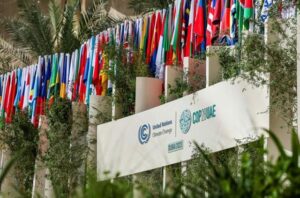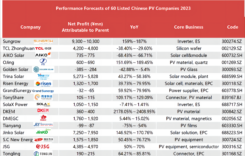PVTIME – The United Nations Climate Change Conference (COP28) in Dubai concluded on 13 December 2023. Almost 200 nations approved a roadmap for transitioning away from fossil fuels for the first time. This is a historic and landmark deal for global efforts to reach net zero by 2050.

“Whilst we didn’t turn the page on the fossil fuel era in Dubai, this outcome is the beginning of the end,” stated Simon Stiell, the Executive Secretary of UN Climate Change, in his closing speech. “Now all governments and businesses need to turn these pledges into real-economy outcomes, without delay.”
Although the outcome document does not mention an initial fossil fuel phase-out programme on 5 December, progress has been made from avoiding talking about fossil fuels in the original programme to clearly stating the direction of reducing their use. The European Union and the United States have been advocating for the explicit inclusion of phasing out fossil fuels in the outcome document. Middle Eastern oil producers, such as Saudi Arabia, have objected. The outcome was vague, but concessions were made in terms of presentation.
A clear goal of expanding renewable energy sources, including solar and wind power, has been set. By the end of 2030, the world’s newly installed renewable energy capacity is expected to reach 11TW. Photovoltaic systems will play an important role in achieving this goal due to their rapid deployment and continued growth.
COP does not impose any legal obligation on its signatories to comply with its agreements. Instead, countries are expected to revise their own climate change legislation and their ‘nationally determined contributions (NDCs)’, which were developed as part of the 2015 Paris climate agreement.to three times the current level.

Scan the QR code to follow PVTIME official account on Wechat for latest news on PV+ES











